This is a long-form take on Young Critics Lab, the annual workshop on film criticism for youngsters organized by MAMI which is the organization behind the Mumbai Film Festival. I attended all the three rounds of the lab in 2017 between August and October, which typically ends with the finalists attending the week-long festival in various venues across Mumbai and selecting a film for the Young Critics Choice Award.
Yashwardhan Singh won the Best Young Critic Award that year, with the lab again having a successful bout in 2018. I’m a bit late with this editorial but I think that guy from Kerala who pinged me on Twitter back in July 2018 with some questions about the lab would find this helpful. I hope he (and countless others) make it to the lab in the future years because it’s one hell of an experience.
A Bit of Personal History
I have been a fan of cinema for the better part of my adult life. As a young boy, I was least interested in any form of art. I didn’t read books nor was I exposed to any kind of screen-based entertainment. That’s because I was brought up in an environment that didn’t encourage much blending with the arts. Poverty may have something to do with it, but that was a long time ago. As a child, I remember going to one or two circus shows that I immediately grew to despise. And the fondest memory I have of watching a film on the big screen was when we went for Jijo Punnoose’s 1998 fantasy drama, Chhota Chetan, which is also known as India’s first 3D film. I don’t remember the specifics or even the details of the plot because I haven’t seen it again after that day, but the idea of sitting in a dark room with people having similar interests, wearing a contraption over my eyes, and watching motion picture unfold in front of me taking me beyond reality really stayed with me.
Although it took me some time to actively pursue this interest, I wanted to do more than just watch and analyze films in my head. My interests in cinema then grew exponentially in 2012 when I created an account on IMDb and started reviewing films in my free time. Rating films (out of 10 stars) and reviewing them on the platform gave me an instant rush, but I soon began to realize that instead of appreciating them, I was ranting, finding faults, and spreading negative opinions. And fellow IMDb users seemed to love it. Today, some of my most popular (or useful) reviews on IMDb are those where I have given the films a negative rating (mostly one or two stars).
Instead of appreciating cinema the right way, I was belittling it. Breaking people’s hard work up into pieces and describing them using negative adjectives to gain personal gratification and a few likes/upvotes. And that’s perhaps the biggest issue today with film criticism, and that is where originates from, that phrase: everybody is a critic today!
I had no formal education in the arts or any experience in the department of filmmaking, which showed in my reviews. I was calling films good, average, and bad without even analyzing their aesthetic, technical, or artistic qualities. I was what you would call “the self-proclaimed film critic” and the web is brimming with people like that.
The Why
In May 2016, I watched and hated Rajeev Ravi’s crime thriller, Kammattipaadam, starring Dulquer Salmaan and Vinayakan. Everybody else seemed to love it. (I would later come to know that Baradwaj Rangan, our chief mentor for the 2017 edition of the lab, was one of this everybody.) And so started my quest to know more about cinema and do film criticism the right way. The problem was that I was very passive about it.
So, when in June 2017, I found out that the Mumbai Academy of Moving Image (MAMI) was organizing an informal crash course on film writing and criticism, I didn’t think twice before applying myself. The Young Film Critics Lab required its applicants (aged between 18 and 25 years) to submit a short test, which I enthusiastically did. In the third week of July, I was confirmed as one of the students for the lab which would have its first round in August at J W Marriott, Juhu in Mumbai.
The Young Critics Lab (sometimes abbreviated as YCL) was going to take me by surprise.
Walking into the Lab
I was one of the 60+ students who attended the first round of the workshop in August 2017. Before it even started, we were given a list of 50 essential films to watch. Films that Baradwaj Rangan, a National Film Award winner (for Best Film Critic; c. 2006), and a renowned critic currently with Film Companion, wanted us to see before we entered the hall that day.
I had seen a mere eight films out of that list then and I am ashamed to say that the number has risen to nine as of today. Ironically or not, I watched Ridley Scott’s Blade Runner (1982) a few weeks ago, and let’s just say, I’m not a fan. I am not allowing you to judge my takeaways from the lab because there’s more to it than my relationship with this list.
Round One of YCL
The first round, like the other two rounds, was a two-day workshop. It began at 9 in the morning with a scheduled wrap-up at around 5 in the evening. Lavish breakfast and lunch, and unlimited coffee were served by Marriott so that we could entirely focus on the learning. Boys and girls from different parts of the country (but mostly Mumbai) were present, with a majority of them still studying. Most were from an Arts background, which was evident throughout the workshop. I also met and talked to a bunch of guys who had quit their jobs to pursue full-time careers in film, and this was their first active participation at a cinema-based “discussion platform”. Which made me jump a little because I had never thought of reviewing films as a full-time job. And I never will. (Maybe that calls for another article, but not today.)
I had registered for the Young Critics Lab purely for the experience and to learn a few more things from reputed critics who have been in the know for years. In that way, the first day of the workshop was overwhelming.
Lessons from Baradwaj Rangan
Baradwaj Rangan, who also maintains a blog, talked about a lot of things in the first round. My notes for those days tell me that we discussed what a review is and how it should look like, what all it should consist of, and the duties of a film critic before, while, and after watching a film. Apart from the general list of takeaways that I have listed below, the first round taught me this, in my own words:
A review of a film is a write-up about what you feel about it, first-hand while and after watching it. It’s an opinion directed chiefly at the reader. Criticism, which is a subset/variation of a review, is describing why you feel what you feel.
We also talked about filmmakers (Imtiaz Ali, Richard Linklater, and David Dhawan), film theory, basic-level cinema interpretation and analysis techniques, the process of reviewing and writing it, and the mythical concept of the perfect review. According to Baradwaj Rangan, the perfect film review – if it exists – is a mix of two approaches, reviewing and critiquing. How you differentiate between them is up to you and that will shape your reviews.
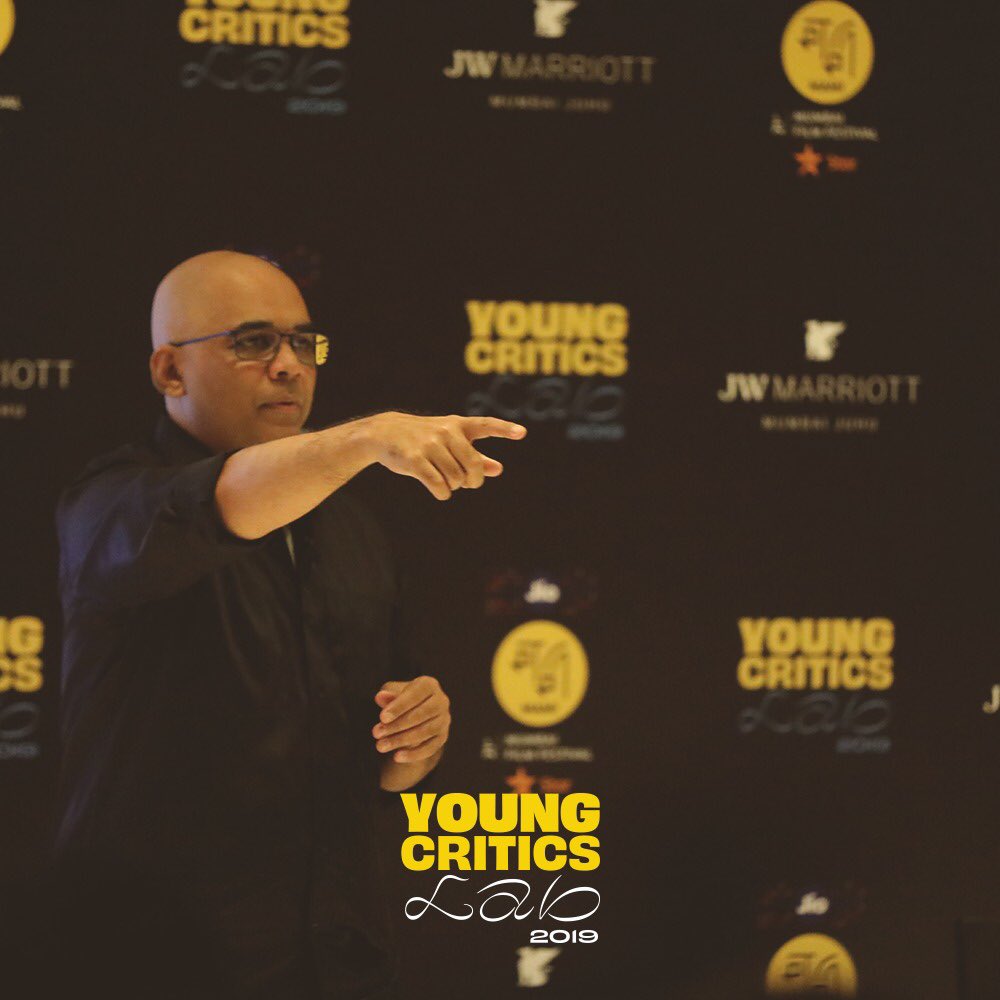
From Maxim Gorky to Pauline Kael
The Young Critics Lab took us on a route to the history of film criticism. We discussed the personalities and works of writers and notable film critics such as Maxim Gorky, WG Faulkner, Otis Ferguson, James Agee, Pauline Kael, Andrew Sarris, Chidananda Dasgupta, and many others. Compared to the times when these greats were most active in, the landscape of cinema and film criticism has changed drastically. Because everyone is a critic today, film criticism has turned into a beginning of a never-ending conversation.
With TV and web shows being consumed like water in the middle of a summer night across the globe, film criticism is no longer a concept that was considered niche between the 1940s and late twentieth century. So many films are released to the public that today it is up to you to choose what films you want to watch and review. A privilege that we both enjoy and are cursed with. Because there are so many films and shows and so little time.
The Qualities of Good Film Criticism
The most memorable takeaway from the first round was finding out the essential elements of a “good review”. Mastering some or all of these qualities can ensure that the review does not stray away from its main purpose: delivering an outlook or a perspective about the film to the reader. According to Rangan (with respect; apologies for calling him by his last name), everything from bibliographic information to spoiler-less plot description to the identification of theme/s to the overall feel of the film is important.
I do have the detailed notes for these qualities but I do not want to share it publicly here. That would make future editions of the lab redundant. Therefore, I take this opportunity to highlight the importance of being physically present at the lab – which is free – if you want to experience what I did. (If you insist, however, I can share all the notes with individuals. Ping me here (beware; opens on the same tab).)
Rangan also feels that an able critic will know where the film is going in the first 15 minutes itself. If you don’t then you were not paying enough attention. Reviewing a film is an art as it is a process, which is why there is no designated length for a review. It can be a few lines or more than 2000 words – there’s no limit. But, then again, it depends on the medium of your review, publication limitations, and actual content. (Note: This is something that I have been experimenting with since the lab. I try writing short, shorter, long, and one-line reviews of films. You can check them out here.)
Conversation with Raja Sen and Anupama Chopra
On the second day of the first round, we also got a chance to hear eminent film critics and writers Anupama Chopra and Raja Sen talk about criticism. A lot of interesting points were made – mostly about reviewing Bollywood films. Two of the biggest takeaways from this conversation:
- It is more difficult to review average films than good or bad films (Chopra and Sen)
- There can never be a film that’s 10/10 because there’s always something that’s lacking (Sen)
We also had the lovely Smriti Kiran briefly talk about MAMI and the festival over the years. And that’s the photo below that we clicked to end round one a very high and eclectic note.
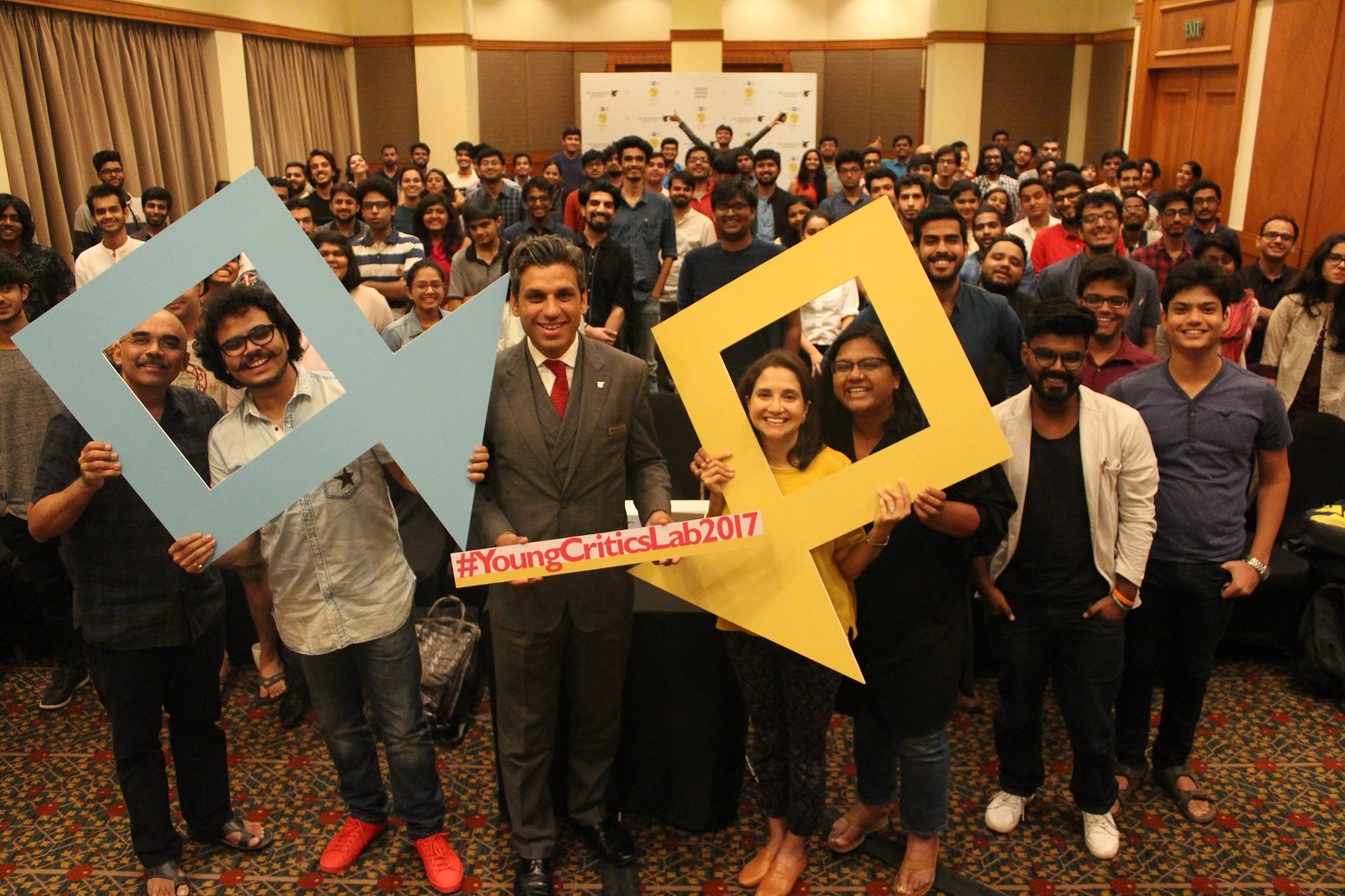
Major Highlight of Round One
One of the main highlights of the workshop is that it not a monologue but a conversation between the mentor and the students. Although I was too shy to ask, during my time at the lab, I found satisfactory answers to these questions:
- Should a reviewer avoid reading other reviews?
- Is hating a classic film blasphemy?
- Should I base a review on first viewing only? Or can I watch it one (or a few) more time?
- Should I worry about hurting the cast and crew of a film while reviewing?
- Is film reviewing a sustainable profession?
- Is it okay to publish a review on a blog and a publication at the same time?
- How do I assign a rating? And what rating convention should I follow?
If this is the type of questions you have about film criticism, you can be sure that the Young Critics Lab is made just for you. Here’s an active thread about it on Twitter.
Concluding Round One
Round one ended with two things:
- Reading and analyzing reviews of Francis Ford Coppola’s The Godfather (1972) written by Roger Ebert and Pauline Kael
- Watching a short clip of Satyajit Ray’s romantic drama Charulatha (1964) and reviewing it.
We had to write a 500-word review of the clip considering it as an independent short film. The qualification for the second round depended on this review’s merit. I hadn’t watched the film before, which I think was helpful that day. Here’s an excerpt from my review:
There is relevance all over the place in this film, as is with any other Satyajit Ray film, but it’s the theme that makes Charulatha worthwhile and elevates the overall experience despite being a monochromatic film in a digital age known for its maelstrom of colors. It’s about a lonely wife who does not expect an acknowledgment of her situation, but instead a solution, which does not seem to show itself, not even in the politics that her husband brings into form.
A fortnight later, I received a mail telling me that I had passed the first round. I was elated as I saw the qualification to both the second and third rounds as a sort of validation to my writing and perspective on films. The Young Critics Lab had already crossed its worth. Here’s a take on YCL by The Hindu.
Pro Tips for Off-Station Folks
Most of the people I met who had traveled from afar stayed in local lodgings and hostels around the area (Juhu) to attend the workshop. This was both affordable and convenient because the festival also takes place in venues in a 30-kilometer radius from the usual venue (J W Marriott) of YCL.
Venkat Ramanan (who is a video editor by profession), a friend from Chennai, stayed at the low-cost Urbanpod. He used to fly to Mumbai the night or two before the workshop, stay there for the weekend, and fly back the next week after exploring the city. He repeated this all the three months and I think he pre-planned this at work sometime in June/July. You may also get discounted rates on OYO rooms (partners of MAMI), so do check with the organizers before booking anything.
So, if you are not in Mumbai, you are looking at staying in Mumbai for at least 5 days each for the first two months and then taking a longer break (of around 12 days) for the final month. Because you also have to mandatorily attend the festival (glimpses of the 2018 and 2019 editions) and review all the films in the India Gold section to be eligible to vote for the Best Young Critic Award.
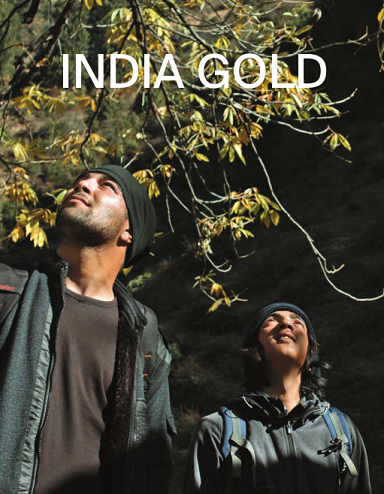
I understand that the question of affordability arises for people who are not from Mumbai, but trust me, the Young Critics Lab is totally worth it if you really are an enthusiast. Plus, as noted above, YCL finalists are given free screening passes for all the films in the India Gold section.[1]In 2017, they handed out delegate badges for the entire festival. However, you can still register for the festival separately and take full advantage of your time with MAMI. This way you can catch all the screenings (4 per day, if you book online through BookMyShow) all the 7 days. You are anyway not gonna be working or studying when you are here, so why not make the most of it?
Round Two of YCL
I did not expect it but the two days of round two mostly entailed watching and discussing in vivid details two films – Rene Clément’s Purple Noon (Plein soleil) (1960) and its American remake, Anthony Minghella’s The Talented Mr. Ripley (1999).
It was one of the most scintillating experiences for me, being in the midst of English Literature students and film enthusiasts who quoted Descartes and Homer and Oedipus while finding references in the films. A popular topic amongst debaters around the world, the workshop witnessed high-intensity comparison between the two films (each and everyone was going gaga for Alain Delon), with Rangan shooting points to discuss and us students breaking them into more points that even the two filmmakers would gasp at hearing. I think the 1960 French-Italian classic won the debate by a hairline margin but I think a majority of the folks present would agree that a tie would be the best way to end that debate. Once and forever.
What I loved and would like to point out about these workshop rounds is that most of the discussions had natural humor in them. For instance, I remember a fellow attendee referring to a chef and his Italian pizza and comparing it with the anti-heroic character in the two films. It was a lively discussion which was elevated by an active participation by the students. Which is generally rare in such workshops.
The thirty or something of us then proceeded to round three, which was scheduled on days adjacent to the start of the film festival. This way we could continue our discussions about films while experiencing the festival first-hand with newfound knowledge on film criticism.
Round Three + Festival
If there is one international magazine that I fervently follow then it is TIME. So when I received the mail about the third round informing me that TIME magazine critic Stephanie Zacharek would be mentoring us, I jumped up and down on my seat. I still remember going numb reading her reviews online and updating my watchlist on IMDb. Meeting her was not exactly a dream come true but heck! I thought it called for a selfie.
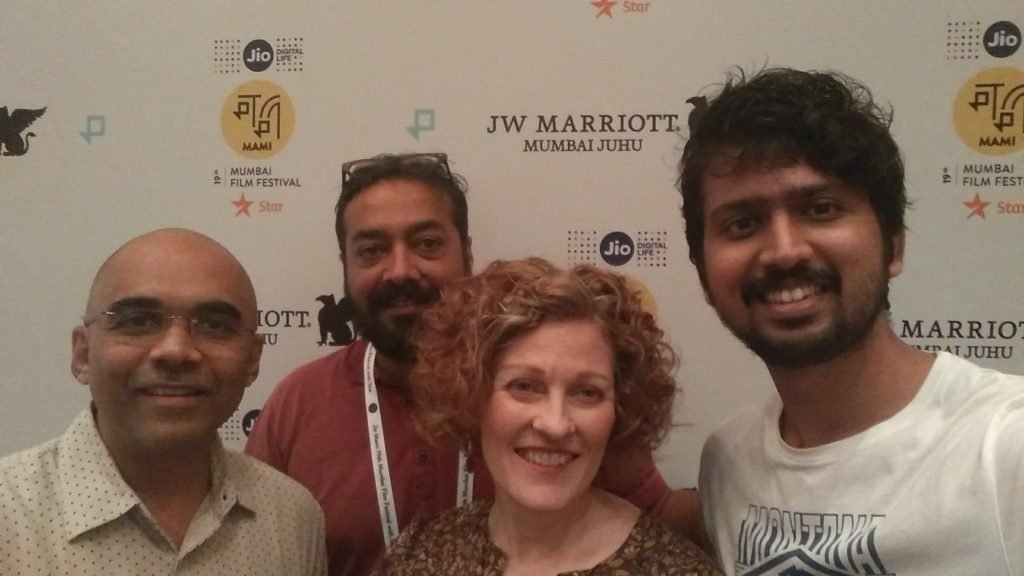
Under Zacharek, we chiefly dug into international film criticism. Since Darren Aronofsky’s mother! (2017) had released in the US just then, 2 out of 4 topics that we discussed in round three included a reference to that. Which automatically made it a not-to-be-missed film at the festival for all the attendees.
We read and studied reviews written by James Verniere and A O Scott, and other critical works written by other popular writers. Unfortunately, I don’t remember a lot of the discussion because I was so enchanted by the discussion I forgot to take notes. (And, guys, that is why you always take notes. Always.)
However, here is a list of the top takeaways from round three:
- Every film is two films – one that you see and one that you remember
- A review can be written in a way so that it encompasses everything you know and everything you are when you think about the film (because you should never compose while watching a film)
- Reviewing films during a festival is probably the most challenging task for a film critic. You are looking at at least four films a day and you are supposed to write at least 1500 words of content per film and send them to the publishers because web publishing is nasty and time-sensitive.
At the end of the first day, we watched a short clip from Jerry Lewis’s comedy, The Bellboy (1960). The task – which would partially help in adjudging the Young Best Critic – was to review that sequence and send it to Zacharek for review. The second day, we discussed some of the most interesting reviews. Mine did not make it, but it was exciting to see how others had perceived the scene (it was irritating).
End of the Workshop
The workshop ended on a merrier note as I had made one friend (Venkat Ramanan) and racked in lots of great opinions and perspectives on cinema and its criticism. All finalists were handed a participation certificate as well as a coffee mug with the phrase ‘Where Literature Meets Cinema’ inscribed on it, probably describing what Mumbai Film Festival aspires to be or already is.
Then we were given a bunch of guidelines as to what we were supposed to do during the week-long festival. Unfortunately, I had to cut short my experience on the second day of the festival due to an urgent surgery. I watched a couple films in the India Gold section and enjoyed the festival wholeheartedly while it lasted for me.
Looking back, I would have done a couple things differently when the lab was in session. I would have also rescheduled my surgery, but for all that it’s worth, I had a hell of a time with everyone that I met and talked in the lab. And that definitely called for a photograph. To show to my grandchildren if they are ever born.
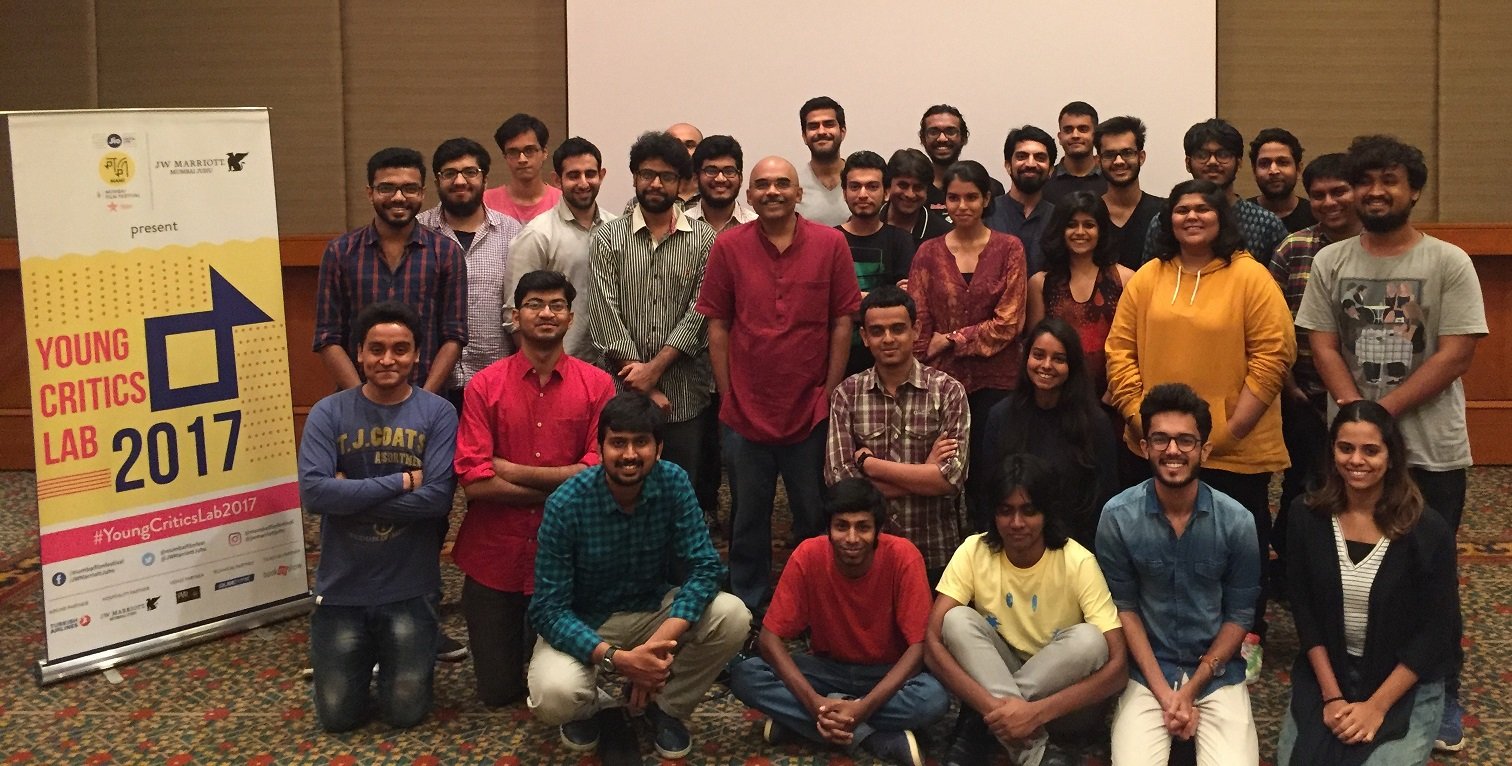
In the above photo, that’s me (checkered green shirt) on the extreme left on the bottom row. Behind me in a red shirt is Yashwardhan, the Young Best Critic of 2017. Behind him, standing in a purple and blue checkered shirt is Venkat Ramanan, my friend from Chennai.
Concluding the Young Critics Lab
I would be lying if I said all the three rounds were equally interesting and informative. Round one would take the pie for me as I learned a lot of things I didn’t know from Baradwaj Rangan. Watching the films and comparing them in the second round was exciting and a level-above experience. Stephanie Zacharek helped us see beyond India, as she also talked about film criticism as a profession in the West. But, out of everything, if I had to choose one great takeaway from the Young Critics Lab, then I would choose Rangan’s commandments on film writing and criticism. I believe every aspiring cinema writer should stand by these rules from day one. Only then can they make a difference.
Baradwaj Rangan’s Critical Commandments for Aspiring Film Critics
There are 20 commandments in total and it’s not easy. I would like to apologize to both Rangan and MAMI for publishing these without permission.
- Learn/know cinema
- Watch movies; read reviews after
- Make a note of what you feel (while viewing)
- Be detailed (while writing)
- Entertain/engage the reader
- Don’t worry about authorial intent
- Don’t go along with the hype (compare with #10)
- Understand ratings
- Be confident
- Don’t let the editorial desk influence you
- See the classics
- See Indian films
- See both popular and art-house cinema
- Try not to do reviews for films you don’t have a feel for
- Don’t mock directors
- Watch one slow film a week
- Give films one more chance
- Know your audience
- Keep writing
- Keep reading
Further Reading
If you somehow do not qualify for the lab or are above 25 years of age, you can still use this editorial as reference material. Plus, if you took the 20th commandment seriously, here are some book suggestions by Rangan and Zacharek for further reading:
- All books of Walter Murch
- Michael Ondaatje’s The English Patient (1992) (Man Booker winner)
- Ralph Rosenblum’s When the Shooting Stops, the Cutting Begins: A Film Editor’s Story (with Robert Karen) (1979)
- All books of Sidney Lumet
- Works of Australian film critic Robert Hughes
- All works of Kenneth Tynan
That’s it about one of the most interesting and fruitful products by MAMI other than the festival itself, the Year Round Programme, and the Movie Mela (more details here). I can confidently say that my knowledge of cinema and its criticism has improved considerably over the past year. I cannot say that I follow all of Rangan’s commandments, but I am on my way. I caught Blade Runner, didn’t I? And that definitely counts for #16.
The Young Critics Lab will essentially give you some actionable tips and show you the direction. How you take it and what you make of it depends totally on you.
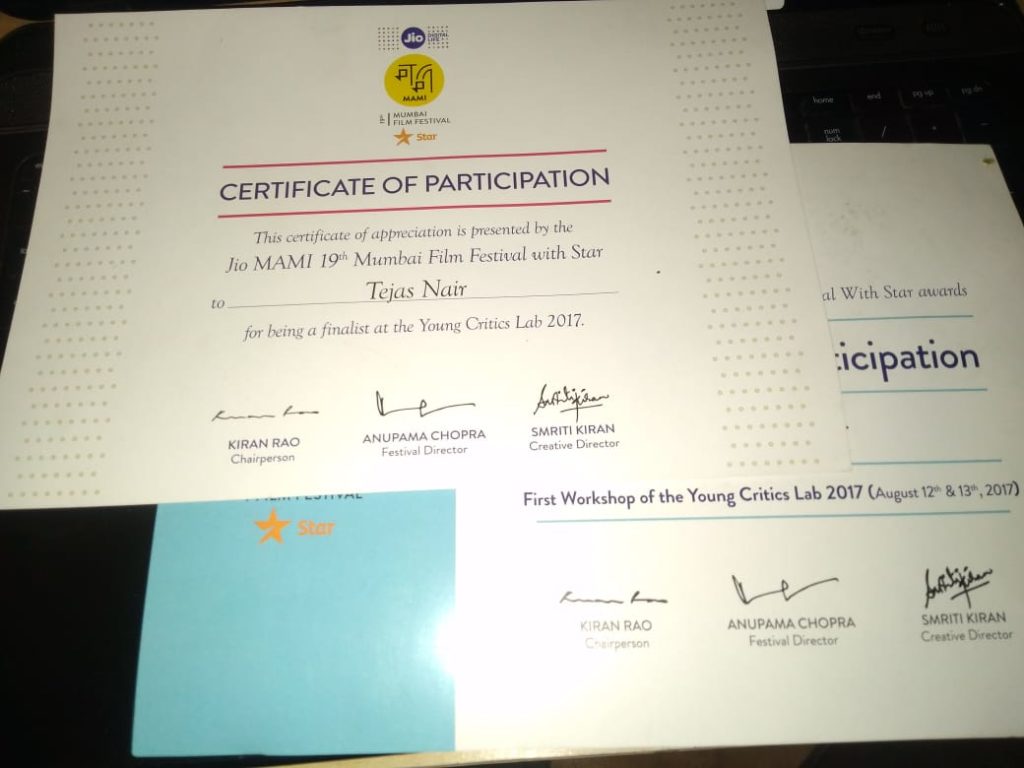
I know I have talked a lot in this editorial and I’m not sure if I should have. But I had been meaning to do it ever since I prematurely ended my lab experience in 2017. (But since I wrote this, I have received dozens of emails and pings on Twitter from aspiring young critics looking for more information. Looks like the decision to write this was right.)
Then when a guy named Cyril Samuel pinged me on Twitter to share my experience at Young Critics Lab, I just had to do it. I hope he makes it to the lab next year. If he does then I think my job is done here. TN.
Young Critics Lab 2020 is now inviting applications till 1 July. The 2020 edition will take place on the following dates: 8/9 August (round one), 19/20 September (round two), 2/3/4 November (round three), and 5 to 12 November (22nd MAMI MFF). You can register for the lab by visiting this webpage.
Featured image courtesy: MAMI
Update: copyedited; added images, a few lines, and new URLs. (16 September 2019)
Update #2: updated for 2020, added new URLs; copyedited subheadings. (22 March 2020)
Footnotes
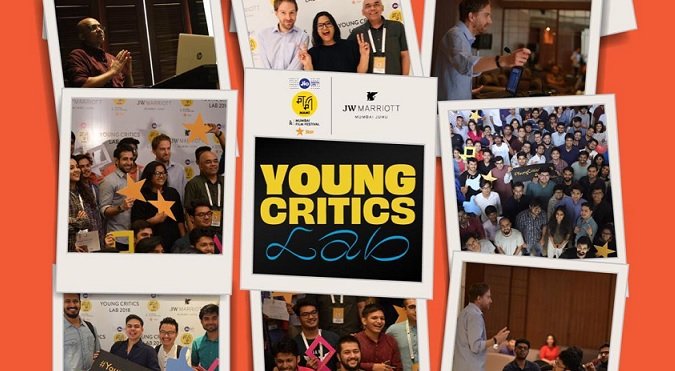
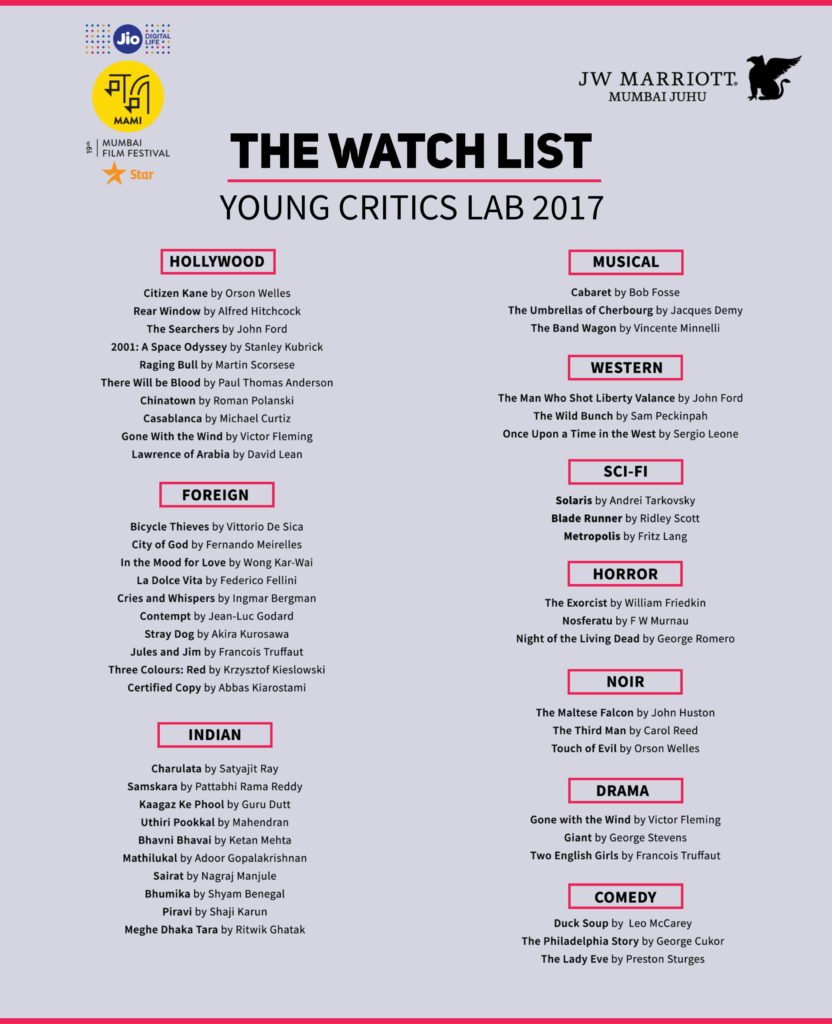
10 responses to “My Experience at MAMI’s Young Critics Lab”
[…] The fest was perhaps the most exhilarating experience I had all year, which I would compare with my time at the fabulous Young Critics Lab in […]
[…] wrote a detailed article about YCL last year which I think will be enough to push you to sign up if they host it this year. Keep your […]
Hey! I’ve made it to the first workshop this year, it is going to be conducted on Aug 17th, and I’m pumped up with excitement! This write-up is pretty helpful. Thanks!
Thanks! And all the best with the critics lab, Ram Venkat!
[…] start new competition sections but also run the only film criticism workshop in India – the Young Critics Lab which began in 2009 as a platform for young cinema lovers-cum-writers to hone their skills and take […]
[…] and meet like-minded peers. This was the event that I most looked forward to after reading about another critic’s experience in an earlier edition. His account of the time he spent in the lab motivated me to apply for […]
[…] when I first attended the MAMI Mumbai Film Festival and 2018 when I also underwent training at the Young Film Critics Lab, I had a lot of energy, agility, and flexibility to move around and shuttle between the venues. As […]
[…] like a silent spectator. I stopped taking selfies after this one time with Anurag Kashyap at the Young Critics Lab. Otherwise, I would have requested Darshana Rajendran and Vinay Forrt for one each during the […]
Dear Tejas,
I hope this message finds you well! Your blog post on your experience at MAMI’s Young Critics Lab was truly captivating. It’s evident that you gained a wealth of knowledge and insights during your time there. I would be incredibly grateful if you could share some of your notes from the YCL with me. Your perspective and expertise would be invaluable as I delve deeper into the world of film criticism.
Thank you so much for considering my request. I eagerly await the opportunity to learn from your experiences.
Best Regards,
Shravan
Hi Shravan, please send me an email. Address is on the contact page.